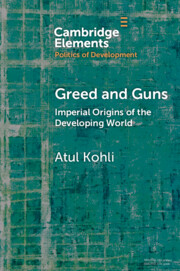Element contents
Greed and Guns
Published online by Cambridge University Press: 24 October 2022
Summary
- Type
- Element
- Information
- Online ISBN: 9781009199759Publisher: Cambridge University PressPrint publication: 17 November 2022
References
- 8
- Cited by



